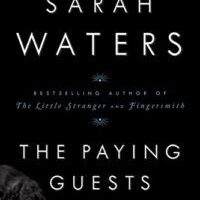In our series “Can Writing Be Taught?” we partner with Catapult to ask their course instructors all our burning questions about the process of teaching writing. This month we’re featuring Alex McElroy, author of the forthcoming novel The Atmospherians, who’s teaching a course on how to make the first few pages of your novel really sing. We talked to them about leaning into your flaws, resisting feedback that prevents you from being true to yourself, and why writers should learn to cook.
What’s the best thing you’ve ever gotten out of a writing class or workshop as a student?
Can I name two things? For me, the most important part of workshop was making friendships with trusted and brilliant readers. These are spaces to learn who reads and understands your work, and to discover the work and writers that most resonate with you. Also, I left workshops with a pretty thick skin. I learned to value and defend what I loved about my writing.
What’s the worst thing you’ve ever gotten out of a writing class or workshop as a student?
Readings of my work that have nothing to do with the work itself. At times, workshop can push writers away from their vision and can lead them to rethink entire projects or revise in directions meant to please other people. This has happened to me a couple times, and it always takes some effort to get back to what I believe in about my writing. Also, I could’ve done with a few less assigned readings of “A Good Man is Hard to Find.”
What is the lesson or piece of writing advice you return to most as an instructor?
Lean into what might appear, on the surface, to be flaws in your work—there is value in what makes your writing unique. Consider the moments where readers are most engaged by your writing: positively, negatively, loudly. Making a reader feel something is key. And even a reader’s impulse to “change” aspects about your work might be a sign you’re doing something right if the reader found themselves returning to particular passages. In short, cultivate what sets you apart.
Does everyone “have a novel in them”?
I think it’s vital that instructors be transparent about the financial realities of writing professionally.
Does everyone have a story to tell? Yes. I believe this. However, is everyone able to—due to life/family/career circumstances—carve out the space necessary to commit to writing a novel? I don’t think so. Though I wish we lived in a world where people could, but that’s another conversation. This isn’t to say not everyone can do it. But writing is hard, especially writing a novel, and it takes a great deal of confidence, encouragement, luck, sacrifice, and safety to put together an entire book. Writers can gain the first two things from a class or writing community. The others, though, require a lot that is outside of the writer’s control.
Would you ever encourage a student to give up writing? Under what circumstances?
I would never encourage a student to give up writing. However, I think it’s vital that instructors be transparent about the financial realities of writing professionally. This might take the form of encouraging writers to work a day job and write in the spare hours, or to write whenever they have met their immediate needs of safety and survival and community. But I would never advise a student to give up if they are committed to keeping writing a part of their life.
What’s more valuable in a workshop, praise or criticism?
Praise—by which I mean enthusiasm. Anything that makes the writer want to keep writing. That is my primary goal in the classes I teach. Similarly, I like when authors speak directly about their aims or intentions. This helps the readers in the room consider what the author wanted out of their piece, and it guides readers toward encouraging the writer in that direction, helping them enhance the parts of their work that most interest and excite them.
Should students write with publication in mind? Why or why not?
Unless you’re on assignment, I don’t think writers should write first drafts toward publication. But it is helpful to revise with publication in mind—you’re revising for an audience, after all, even an audience of peers in a workshop. Personally, I like to get published and share my work with readers. Many authors feel the same way. And, similar to my comments about professionalization above, if a student is looking to make a career out of writing, they should absolutely be considering publication—and thus audience and venue—when they work through their drafts.
In one or two sentences, what’s your opinion of these writing maxims?
- Kill your darlings: Cryogenically freeze your darlings and dethaw them for later drafts, gauge their chance of survival in this modern, unfamiliar landscape.
- Show don’t tell: Why not both?
- Write what you know: I would revise this to “Write what you care most about.” Knowing about something doesn’t necessarily mean you’re interested in writing about it—and the reader will be able to tell if you aren’t.
- Character is plot: Character can help move the plot forward when you’re stuck, but not everything can emerge from character.
What’s the best hobby for writers?
Cooking. It gives you something physical to do with your body, keeps you away from a screen for hours, impresses friends and lovers, and, critically, teaches you good taste.
What’s the best workshop snack?
Tootsie Pop! (ignore what I said about good taste)
The post Alex McElroy Is Not Going to Make You Read “A Good Man is Hard to Find” appeared first on Electric Literature.
Source : Alex McElroy Is Not Going to Make You Read “A Good Man is Hard to Find”











